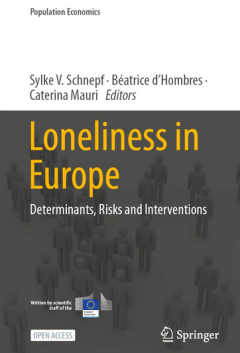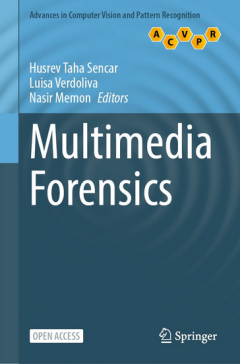Filter by

International Cooperation for Enhancing Nuclear Safety, Security, Safeguards …
Buku akses terbuka ini memeriksa aspek-aspek kunci dari kerja sama internasional untuk meningkatkan keselamatan nuklir, keamanan, pengawasan, dan non-proliferasi, sehingga membantu dalam pengembangan dan pemeliharaan rezim verifikasi serta mendorong kemajuan menuju dunia yang bebas senjata nuklir. Buku ini dibuka dengan membahas dimensi politik, institusional, dan hukum yang penting. Tantangan …
- Edition
- -
- ISBN/ISSN
- 978-3-662-57366-2
- Collation
- online resource ( XXXVI, 220 Pages)
- Series Title
- Prosiding Springer dalam Fisika (SPPHY)
- Call Number
- 363.17 MAI i

Evidence-Based School Development in Changing Demographic Contexts
Buku Akses Terbuka ini menampilkan model pengembangan sekolah (Inisiatif Arizona untuk Pengembangan Kepemimpinan dan Penelitian - AZiLDR) yang menawarkan peta jalan bagi sekolah untuk menavigasi kompleksitas pengembangan sekolah yang berkelanjutan. Dipenuhi dengan proses yang menyeimbangkan nilai-nilai berbasis bukti dengan nilai-nilai demokratis dan responsif terhadap budaya, buku ini menawark…
- Edition
- -
- ISBN/ISSN
- 978-3-030-76837-9
- Collation
- online resource ( XII, 186 Pages)
- Series Title
- Studi Kepemimpinan Pendidikan (SIEL)
- Call Number
- 371.2 YLI e

Mathematics Curriculum Reforms Around the World; The 24th ICMI (International…
Volume Akses Terbuka ini oleh Komisi Internasional untuk Instruksi Matematis (ICMI) adalah hasil dari Studi ICMI 24 dan memberikan status quo reformasi matematika sekolah di seluruh dunia dan apa yang dapat kita pelajari dari gerakan ini. Setiap tema dan bagian buku menawarkan deskripsi dan analisis dari berbagai studi kasus di negara dan konteks yang berbeda, bersama dengan peluang untuk memba…
- Edition
- -
- ISBN/ISSN
- 978-3-031-13548-4
- Collation
- online resource ( XVII, 584 Pages)
- Series Title
- Seri Studi Baru ICMI (Komisi Internasional untuk Instruksi Matematika)
- Call Number
- 375.324 SHI m

Teachers of Mathematics Working and Learning in Collaborative Groups; The 25t…
Buku akses terbuka ini merupakan produk dari sebuah studi internasional yang menawarkan ringkasan mutakhir tentang kolaborasi guru matematika terkait dengan teori, penelitian, praktik, dan kebijakan. Para penulis – peneliti dan guru terkemuka dalam kolaborasi guru matematika – mewakili berbagai negara dan budaya. Bab-bab mengeksplorasi berbagai bentuk kolaborasi guru; keragaman pengaturan d…
- Edition
- -
- ISBN/ISSN
- 978-3-031-56488-8
- Collation
- online resource ( Pages)
- Series Title
- Seri Studi Baru ICMI (Komisi Internasional untuk Instruksi Matematika)
- Call Number
- 371.104 BOR t

Building the Foundation: Whole Numbers in the Primary Grades; The 23rd ICMI (…
Studi ICMI yang kedua puluh tiga ini membahas untuk pertama kalinya pengajaran dan pembelajaran matematika di sekolah dasar (dan pra-sekolah), sambil juga mempertimbangkan perspektif internasional, keberagaman sosio-kultural, dan batasan institusional. Salah satu tantangan utama dalam merancang studi sekolah dasar ICMI yang pertama dari jenis ini adalah sifat kompleks matematika pada tingkat aw…
- Edition
- -
- ISBN/ISSN
- 978-3-319-63555-2
- Collation
- online resource ( Pages)
- Series Title
- Seri Studi Baru ICMI (Komisi Internasional untuk Instruksi Matematika)
- Call Number
- 372.72 BUS b

Loneliness in Europe; Determinants, Risks and Interventions
Volume akses terbuka ini menyertai rilis mikrodata Survei Kesepian UE. Kesepian, yang sering disebut sebagai 'epidemi abad ke-21', telah muncul sebagai masalah kesehatan masyarakat yang serius. Selama bertahun-tahun, kurangnya data lintas nasional Eropa yang komprehensif menghambat pemeriksaan menyeluruh terhadap masalah ini. Pada tahun 2022, Pusat Penelitian Bersama Komisi Eropa melakukan Surv…
- Edition
- -
- ISBN/ISSN
- 978-3-031-66582-0
- Collation
- online resource ( XVIII, 176 Pages)
- Series Title
- Population Economics
- Call Number
- 362.25 SCH l

Multimedia Forensics
Buku ini adalah akses terbuka. Forensik media belum pernah sebegitu relevannya dengan kehidupan sosial. Tidak hanya konten media yang mewakili bagian yang semakin besar dari data yang beredar di internet dan menjadi sarana komunikasi yang diutamakan bagi sebagian besar pengguna, tetapi juga telah menjadi bagian integral dari sebagian besar aplikasi inovatif dalam ekosistem informasi digital yan…
- Edition
- -
- ISBN/ISSN
- 978-981-16-7621-5
- Collation
- online resource ( XII, 490 Pages)
- Series Title
- Kemajuan dalam Visi Komputer dan Pengenalan Pola (ACVPR)
- Call Number
- 364.168 SEN m

Young Adults and Active Citizenship: Towards Social Inclusion through Adult E…
Buku akses terbuka ini menerangi serangkaian keterkaitan kompleks antara pendidikan orang dewasa, pemuda dalam situasi rentan, dan kewarganegaraan aktif. Pendidikan orang dewasa semakin diakui sebagai sarana untuk melibatkan dan melibatkan kembali pemuda serta memfasilitasi peluang hidup dan inklusi sosial mereka, sehingga berkontribusi pada kewarganegaraan aktif dalam konteks sosial mereka. Ku…
- Edition
- 1
- ISBN/ISSN
- 978-3-030-65002-5
- Collation
- online resource ( XIX, 182 Pages)
- Series Title
- Seri Buku Pembelajaran Sepanjang Hayat (LLLB)
- Call Number
- 374.012 KER y

Systems and Innovation Research in Transition: Research Questions and Trends …
Dalam beberapa dekade terakhir, semakin mendesak bagi masyarakat kita, dan bagi para pengambil keputusan di semua bidang masyarakat, untuk memahami dinamika melalui mana sistem inovasi berkembang dan melalui mana sistem sosio-teknis mengubah diri mereka. Karena inovasi dan transformasi sangat saling terkait, menjadi tak kalah penting untuk menganalisis dinamika mereka serta interaksi mereka. Vo…
- Edition
- 1
- ISBN/ISSN
- 978-3-031-66100-6
- Collation
- online resource ( XI, 335 Pages)
- Series Title
- Keberlanjutan dan Inovasi
- Call Number
- 303.483 EDL s

Health Information Systems: Technological and Management Perspectives
Edisi akses terbuka yang telah direvisi secara mendalam ini memberikan gambaran menyeluruh tentang teknologi yang tersedia untuk mengumpulkan, mengelola, dan menilai kualitas sistem informasi kesehatan. Ini merinci berbagai skenario dalam konteks kesehatan dan perawatan kesehatan, termasuk di mana pencegahan dan kesehatan terkait, seperti pengobatan baik penyakit akut maupun kronis. Persyaratan…
- Edition
- 1
- ISBN/ISSN
- 978-3-031-12309-2
- Collation
- online resource ( Pages)
- Series Title
- Informasi Kesehatan
- Call Number
- 362.10285 WIN h
 Computer Science, Information & General Works
Computer Science, Information & General Works  Philosophy & Psychology
Philosophy & Psychology  Religion
Religion  Social Sciences
Social Sciences  Language
Language  Pure Science
Pure Science  Applied Sciences
Applied Sciences  Art & Recreation
Art & Recreation  Literature
Literature  History & Geography
History & Geography